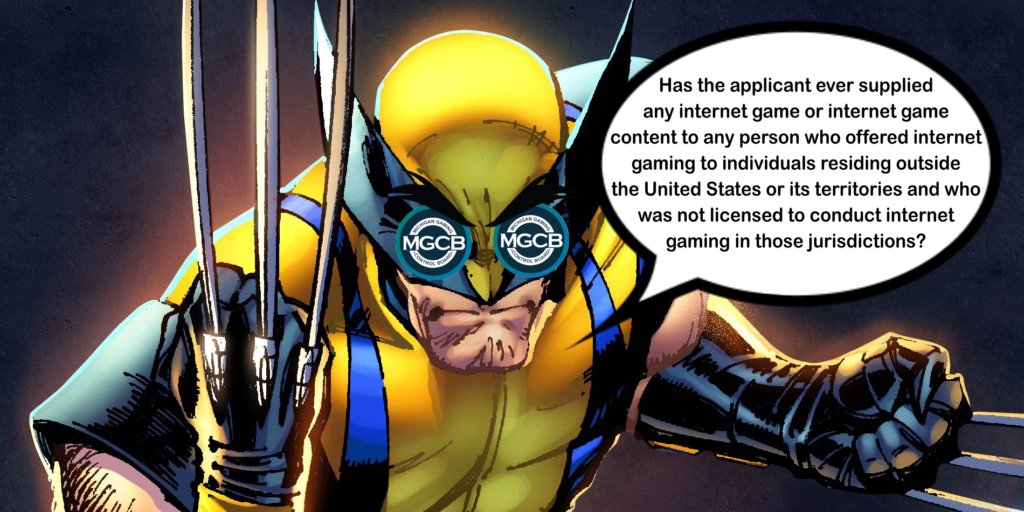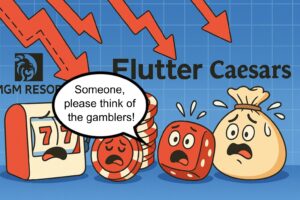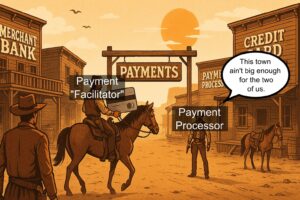Most of the attention on Michigan gaming last month was related to the cease and desist letter sent by the Michigan Gaming Control Board (MGCB) to Harp Media B.V. (Harp), the entity that operates Bovada.
The expectation was that Harp would comply with the cease and desist letter, as it had done in other states. And it did. Michigan has been added to Bovada’s list of prohibited jurisdictions.
The MGCB has established a reputation for taking aggressive action against gaming and quasi-gaming operators in Michigan, first by banning pick ‘em style daily fantasy sports contests and then sending cease and desist letters to sweepstakes casino operators.
To me, the real story was not the MGCB prohibiting Harp, but the Illegal Gaming Attestation Internet Game Content Provider Form (Form) sent by the MGCB to its suppliers. Here are the questions asked of suppliers on the Form:
Does the applicant currently supply any internet game or internet game content to any person who offers internet gaming to individuals residing in the United States or its territories and who is also not licensed to conduct internet gaming in those jurisdictions.
Does the applicant currently supply any internet game or internet game content to any person who offers internet gaming to individuals residing outside the United States or its territories and who is also not licensed to conduct internet gaming in those jurisdictions?
Does the applicant currently accept or has it in the past accepted, taken or received money or any other valuable thing for supplying internet gaming content, directly or indirectly, to jurisdictions in which internet gambling is prohibited or illegal, or is a jurisdiction sanctioned by the Office of Foreign Assets Control of the United StatesDepartment of Treasury?
Has the applicant ever supplied any internet game or internet game content to any person who offered internet gaming to individuals in the United States or its territories and who was not licensed to conduct internet gaming in those jurisdictions?
Has the applicant ever supplied any internet game or internet game content to any person who offered internet gaming to individuals residing outside the United States or its territories and who was not licensed to conduct internet gaming in those jurisdictions?
Has the applicant ever been a party to or been involved in any of the following in any jurisdiction related to illegal gambling operations?
Received a cease & desist letter;
Subject to disciplinary action, including, but not limited to administrative proceedings initiated by a tribunal or the governing agency of the jurisdiction in question;
Payment of fine or other penalty, restriction, suspension, or revocation of a license, permit, or certification;
Civil action before a tribunal or court of competent jurisdiction at the state or federal level; or,
Criminal proceedings before a tribunal or court of competent jurisdiction at the state or federal level.
The MGCB’s actions follow an emerging trend of regulators using gaming suppliers to go after gaming operators. However, what is unique about the Form is the scope of the request. Regulators’ concerns are typically limited to the applicant’s actions in the jurisdiction of application (e.g., Michigan or the United States). Instead, the Form inquires about applicants’ global activities, past and present.
12 years ago, when European applicants were going in front of the Nevada Gaming Commission to secure non-restricted licences, there were some questions about the various jurisdictions in which these applicants conducted business, followed by some uncomfortable answers about why certain jurisdictions weren’t blocked. However, these entities were still able to secure the highest tier of license and continue to offer services in “grey” markets like Canada.
I am VERY interested to learn about how these questions are answered, particularly questions #2 and #5. This is an industry that not only still uses terms like “grey” market, but is now using the phrase “pre-regulated” to describe jurisdictions without regulation. And many publicly held companies still operate in these “grey” or “pre-regulated” markets.
In Ontario, registered operators have faced no discernible friction for operating in the rest of Canada (a pre-regulated market?). And there’s a reason that regulators are not asking the types of questions in the Michigan form. It’s because often the primary goal of a regulated market is channelization. And it’s a lot easier to do that by ignoring what operators and suppliers are doing outside of your market.
The MGCB may have other objectives, which is a privilege it can exercise due to the U.S. being one of the few places in the world that has done a decent job of prohibiting unauthorized gaming. And by asking their suppliers questions that most regulators don’t want to know the answer to, the MGCB is saying the quiet part loud.
If you want more info on this, I thought Brett Smiley’s article in Casino Reports was terrific. Read it HERE.




